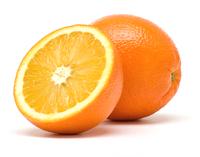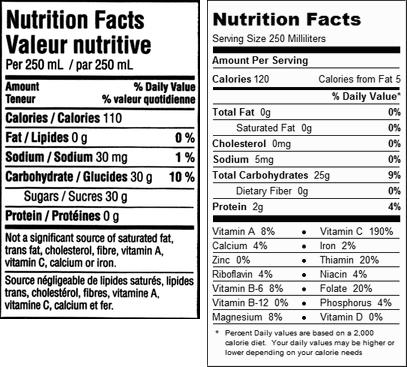Coca Cola vs. Orange Juice (Coke Wins)
![]()
![]()

Chronic obesity is a much beloved issue for both the authors of newspaper columns during a slow news cycle, and for politicians who have come to the disturbing realization that they’ve taxed all the extant sins to the limit, and had best set themselves the task of vilifying something new. In that summer looms as I write this, it’s a safe bet that the idea of taxing soda pop to deter people from drinking it and gaining weight will get another lashing of ink… pretty much as soon as the beaches open.
I take exception to this on several levels:
- Governments are typically voted into power to keep the roads in good shape, not to engage in social engineering.
- In the approximately ten thousand years during which human beings have put up with politicians, there has yet to be an example of political arm-twisting for the ostensible good of the twisted that didn’t result in unanticipated side-effects which were less desirable than whatever the government in question was seeking to prevent.
- Providing more money to a government is analogous to providing more matches to a pyromaniac.
- I really loath the taste of coffee – Coca Cola is my caffeine hit of choice.
In the early months of 2011, a number of governments appeared to be massing their respective forces for an assault upon the wallets of the thirsty. Among them were:
- Hawaii – according to a report by the Associated Press on March 29, 2011, governor Neil Abercrombie was mulling a tax of 25¢ on containers of pop larger than twelve ounces. Hawaii is looking at a budget deficit of about a billion dollars over the next two years.
- Tennessee – Representative Mike Stewart sponsored a bill to add a tax of one cent per ounce to pop, according to a report by WDEF news.
- Texas – a bill proposed by Senator Eddie Lucio, Jr. would add a tax of one cent per ounce to the price of pop, according to a report at Skiff.com on March 23, 2011.
- Toronto – slightly off topic, but a personal favorite – according to a report by 680 News on March 23, 2011, the municipal government of Toronto is once again revisiting the issue of banning the sale of pop in vending machines located on city property, requiring that the machines in question serve only “healthy” beverages… such as orange juice.
A few minutes with Google will turn up as many similar proposals as you have the time to read. If the first government to propose a soda tax had simply had the forethought to copyright the idea and change royalties for its implementation in other jurisdictions, it could have balanced its budget without having to tax anyone.
While a tax-grab inflicted upon overweight people is less likely to arouse the ire of voters than a broader tax on breathing, this one has an important flaw. Coca Cola has fewer calories than fruit juice.

The foregoing are the nutrition panels for Coca Cola, on the left, and California orange juice, on the right. No prizes will be awarded to anyone who notices that the Coke in question was bought in Canada – hence the linguistic duality of its panel – and to be sure, these numbers will probably vary a bit, depending upon which species of pop you favor, and where it’s made.
The salient point here is that 250 milliliters of Coke includes 110 calories, while the same volume of orange juice includes 120 calories.
All things being equal, orange juice is arguably better for you – it includes a great many wholesome-sounding vitamins, and somewhat less sodium than Coke. However, if you’re concerned solely with the caloric content of these two drinks, they’re near enough identical.
This is to say that healthful, natural California orange juice grown in the warmth of the sun, nourished by the gentle rain and lovingly bottled by smiling people will get you just as fat as black, evil, sugar-laden Coca Cola… if you really believe that a few ounces of any beverage can be a significant culprit for obesity.
Admittedly, the danger in this observation that far from being dissuaded from implementing a tax on soda, it may well encourage leftist politicians to broaden their cash grab to include fruit juice.
Obesity is a serious issue, and weight management requires considerable effort and willpower for people confronted with it. It typically involves some significant lifestyle choices, and increased familiarity with the “E” word – that would be “exercise.”
Taxing pop isn’t going to make anyone thinner – although it will lighten many of our wallets to some degree. Like most ostensible sin taxes, it’s a thinly-veiled effort to suck more money from people who can ill-afford to part with it while silencing criticism of yet another tax – if you didn’t behave badly, you wouldn’t be paying for your evil disposition.
The most profound obesity problem in most of the jurisdictions pondering taxing pop is that of their respective budgets.